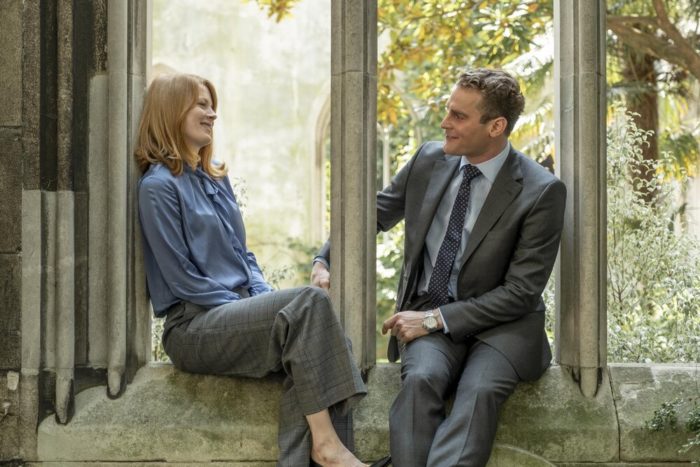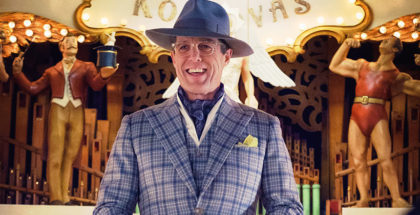VOD film review: Sulphur and White
Review Overview
Mark Stanley
8Emily Beecham
8Emotional devastation
8Matthew Turner | On 21, Apr 2020
Director: Julian Jarrold
Cast: Mark Stanley, Anna Friel, Dougray Scott, Emily Beecham, Aftab Shivdasani, Alistair Petrie
Certficate: 15
Watch Sulphur and White online in the UK: Curzon Home Cinema / Apple TV (iTunes) / Prime Video (Buy/Rent) / Google Play / Sky Store
Directed by Julian Jarrold – marking a significant tonal departure from A Royal Night Out – Sulphur and White is based on the devastating true story of NSPCC campaigner and abuse survivor David Tait. As such, it’s a powerfully emotional exploration of the far-reaching damage caused by child abuse.
As the film begins, David (Mark Stanley) is a successful city trader with a personality that might best be described as problematic. Case in point: he sleeps with the wife of his oddly paternalistic boss (Alistair Petrie) and makes a fairly aggressive play for work colleague Vanessa (Emily Beecham), even though he’s already married. However, as David’s relationship with Vanessa becomes more serious, she tries to get him to open up about his evidently traumatic past, triggering a flood of painful memories relating to his unhappy childhood in South Africa.
Susie Farrell’s script carefully ensures that the full picture of David’s horrific abuse is revealed piece by piece, like a suppressed memory clawing its way to the surface. At a certain point, we fear we can guess the details, but the full story is utterly devastating, so much so that you wonder how anyone could recover from it. That, in turn, is the key to the film’s power – David is irreparably damaged and not particularly sympathetic in traditional movie drama terms, yet we hold out hope that he will somehow find a way through, whether via counselling or through the love and support of Vanessa, or both.
The filmmaking is particularly impressive, particularly Felix Weidemann’s striking cinematography in the South Africa sequences, the beauty of the images contrasting sharply with the horrors endured by young David. (The film’s title, incidentally, refers to the species of butterfly that David can see during his repeated ordeal, framed by the film as both a lifeline and a distraction.)
Mark Stanley is superb as David, his cold exterior masking depths of unimaginable pain as he pushes down his emotions. For her part, Emily Beecham has to work hard to establish a convincingly emotional connection with Stanley’s character, but she pulls it off, particularly during their early courtship scenes, such as the pair racing each other on the beach. The film also affords her a lot of sympathy in her own right, as David’s unhappiness impacts their marriage and she tries to get through to him.
In addition, there’s strong support from Anna Friel and Dougray Scott, both highly effective as David’s parents, but in markedly different ways. Friel’s Joanne is sweet and maternal, but heart-breakingly unequipped, emotionally, to provide the support David needs, while Scott’s Donald is nothing short of a monster – if the film has a flaw, it’s that it fails to dig beneath the surface of David’s father. That’s understandable, in that the film is largely from David’s perspective, but it leaves a frustrating gap.
This is by no means an easy watch, but it’s an important and ultimately rewarding story, enriched by accomplished filmmaking and powerful performances.





















